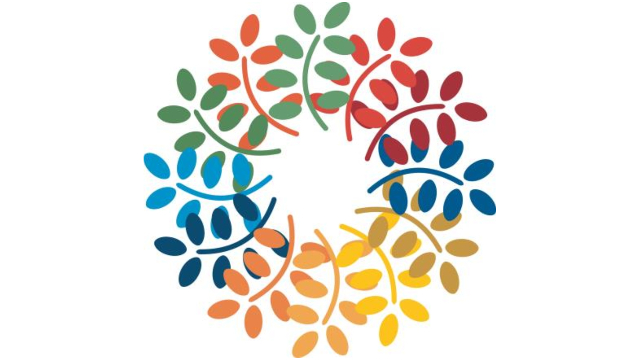
Agenda Knowledge for Development
Editor’s note: A new third edition of the Agenda Knowledge for Development was published on 27 September 2018.
This article is part of an ongoing series of articles on KM in international development.
In September 2015, the member states of the United Nations (UN) General Assembly ratified the Sustainable Development Goals (SDGs), a transformational agenda to address the problems facing the global community, including poverty, gender inequality, and climate change.
Presented at the recent Knowledge for Development: Global Partnership Conference in Geneva, the Agenda Knowledge for Development is designed to complement the SDGs by providing an integrated approach to knowledge-related challenges that directly influence the achievement of the SDGs.
Thirteen Knowledge Development Goals are detailed in the Agenda, as well as mechanisms for implementation and global partnership and processes for follow-up and review.
The Agenda has been developed by an international coalition of civil society organisations, enterprises and academics, initiated and led by Knowledge Management Austria. They consider that knowledge is indispensable to individuals, communities, enterprises, governments and the global community, and so an intrinsic part of sustainable development.
The current version (version 3) is a work in progress. It is based on 50 statements written by individuals with different societal and regional backgrounds. More statements have been collected since then, reaching a total of 73, all of which are presented in the Agenda. The statements demonstrate the diversity of views, issues and considerations involved in knowledge for development.
Knowledge Development Goals – Summary
Goal 1: Pluralistic, diverse and inclusive knowledge societies
Responsible and transparent knowledge ecosystems, also for those who are excluded because of gender, migration status, disability, and other vulnerabilities.
Goal 2: People-focused knowledge societies
Self-determination of the individual, founded on education for all, freedom of expression, universal access to information and knowledge, and respect for cultural and linguistic diversity.
Goal 3: Strengthening local knowledge ecosystems
Collaboration and context-based communication, based on local realities and local knowledge.
Goal 4: Knowledge partnerships
Multi-stakeholder knowledge partnerships crossing sectoral and disciplinary boundaries to facilitate creative and rich solutions.
Goal 5: Knowledge cities and rural-urban linkages
Profiled, internationally well connected knowledge cities recognising and embracing their knowledge function so that rural areas can also be part of knowledge societies.
Goal 6: Improved knowledge strategies in development organisations
Advanced knowledge management strategies with a recognition of these organisations’ role in knowledge ecosystems and in strengthening local knowledge.
Goal 7: Capture, preservation and democratisation of knowledge
Protection of intellectual heritages, including digital heritage, in libraries, museums and archives. Equal opportunities to easily access and use knowledge.
Goal 8: Fair and dynamic knowledge markets
Private sector playing an active and relevant role in local knowledge markets based on fair market conditions for private knowledge services.
Goal 9: Safety, security and sustainability
Evolving knowledge societies mitigating uncertainties and negative impacts.
Goal 10: Legal knowledge
Legal frameworks based on transdisciplinary knowledge addressing the real needs of the people; citizens knowing their rights and being able to invoke them.
Goal 11: Improved knowledge competences and knowledge work
High competence in all kinds of individual knowledge work and organisational knowledge management. High quality of knowledge service professionals; protection of knowledge workers.
Goal 12: Institutions of higher education to play an active role
Universities and other institutions of higher education deploying new, inclusive models to solve real world problems.
Goal 13: Information and communication technologies (ICTs) for all
ICTs being utilized to access knowledge and facilitate communication and dialogue without hampering alternative or traditional methods of knowledge transmission.
Article and header image source: Agenda Knowledge for Development, which is published under CC BY-SA 4.0.
Also published on Medium.

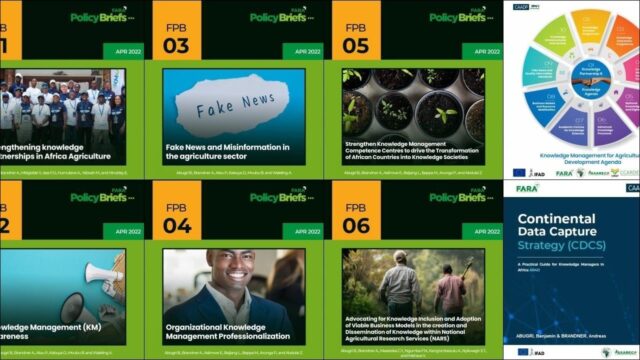
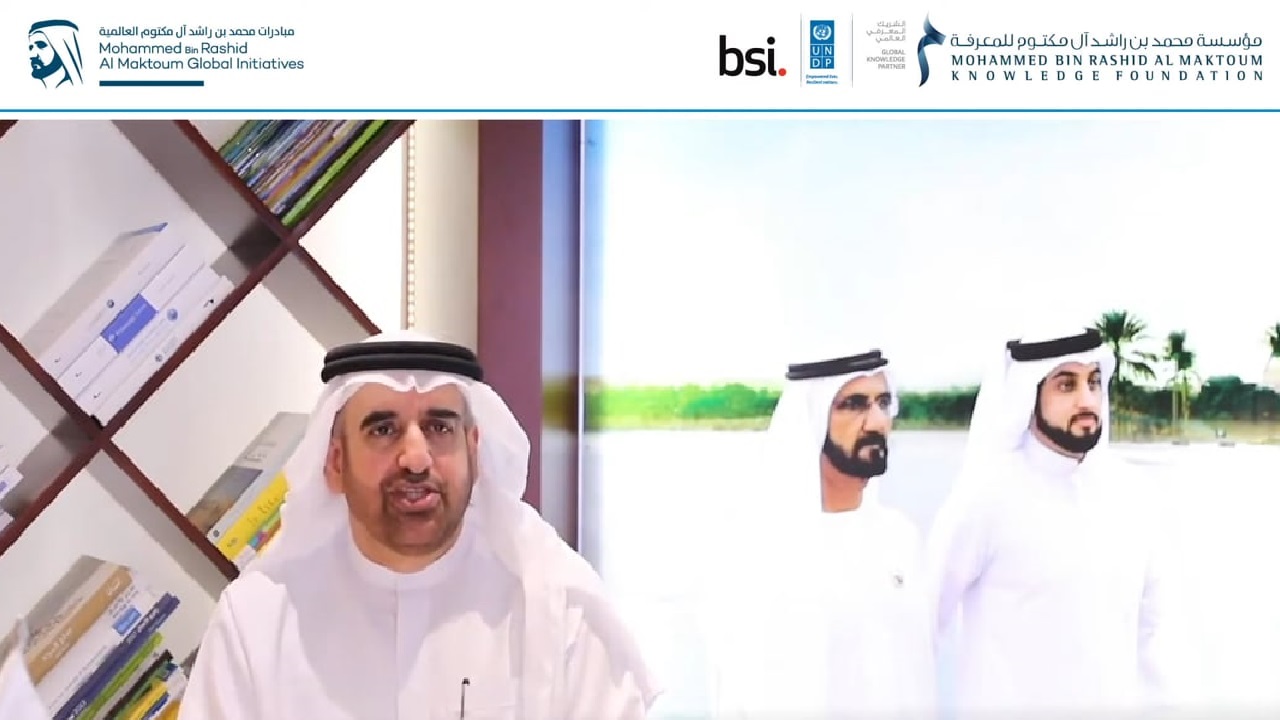
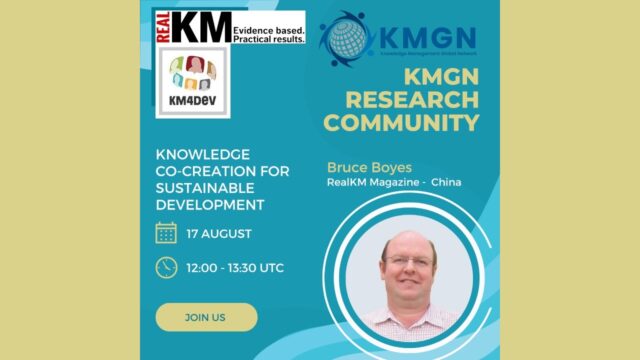

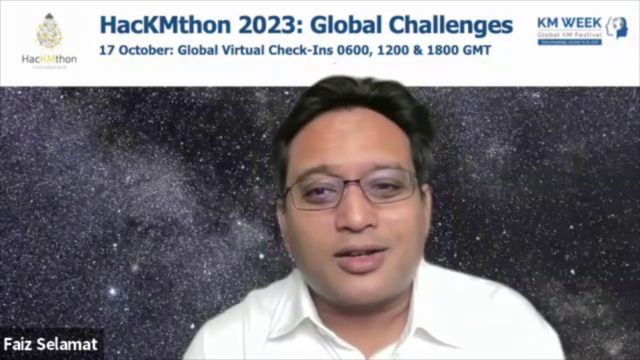

Hi Bruce
Great share here. Would like to get involved with this. It makes me recall how impressed I was in finding out out the Singapore government’s public and business focus on KM for the betterment of Singapore, its businesses, and its people.
Bill Kaplan
linkedin/in/billkaplankm
Many thanks Bill for your excellent comment. The Millennium Development Goals, which the new SDGs replace, achieved significant outcomes including a substantial reduction of poverty in developing countries. The SDGs are a major global focus through until 2030, and the KM goals in the Agenda Knowledge for Development can greatly benefit SDG achievement. As you indicate with your Singapore example, there’s much that can be achieved through a focus on KM in key international and national initiatives.
It was a great honour for me to be part of this course that led me to learning and appreciating all that is happening and has already happened in other organisations in terms of knowledge management. Additionally, to learn about Agenda knowledge for development